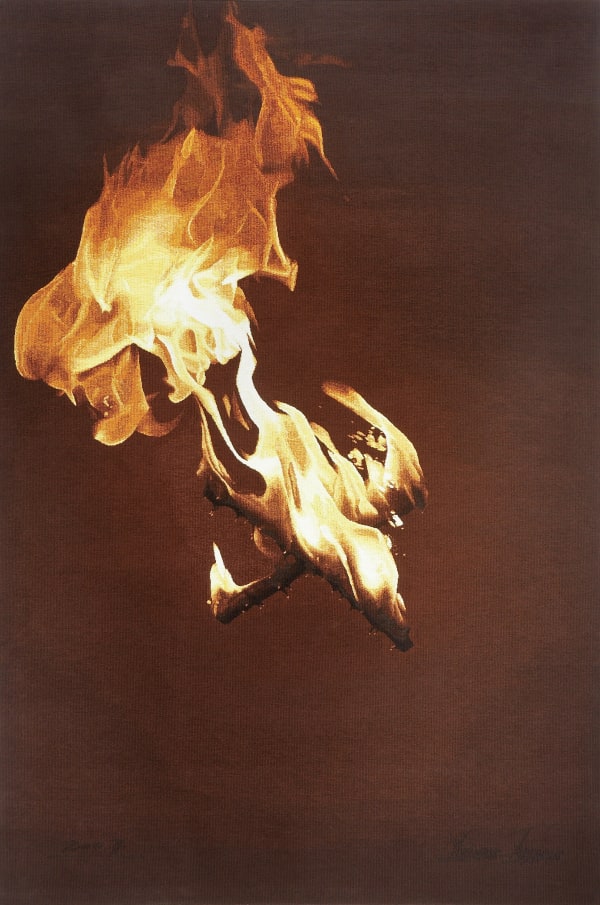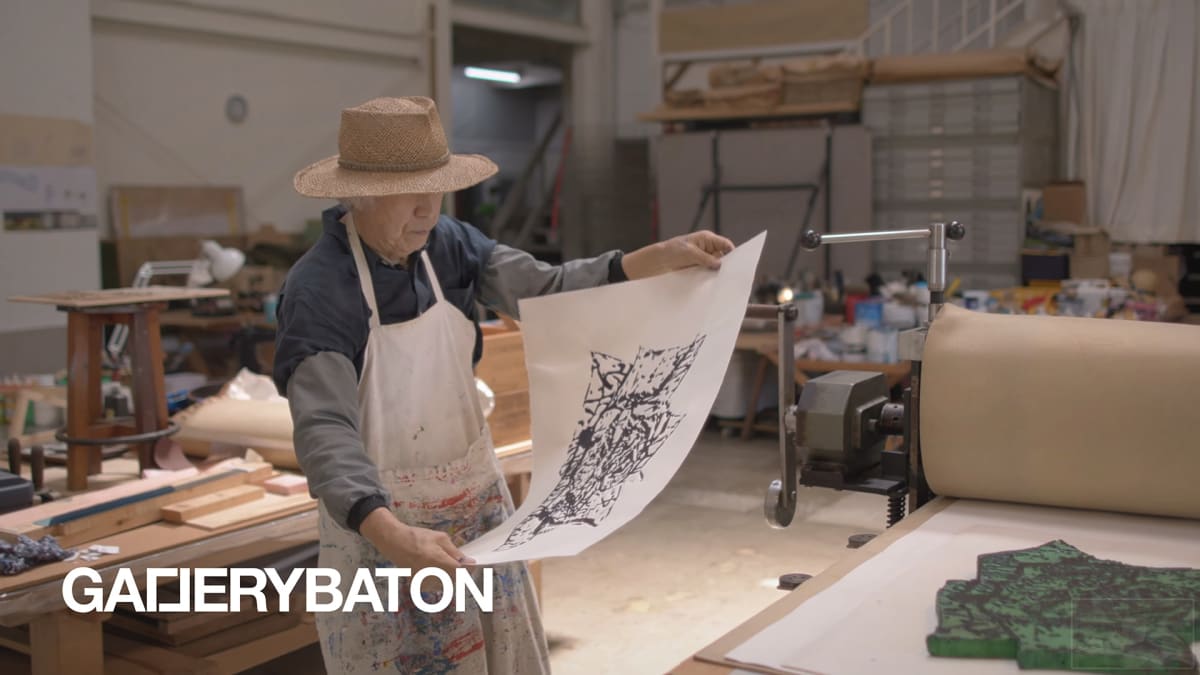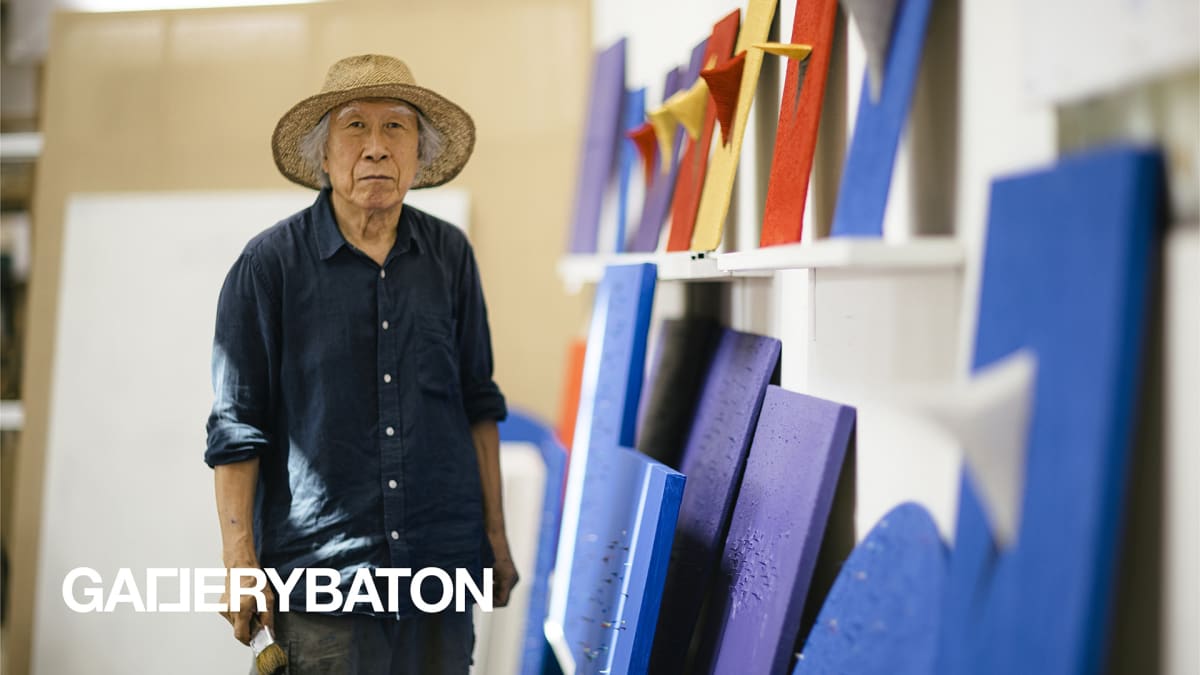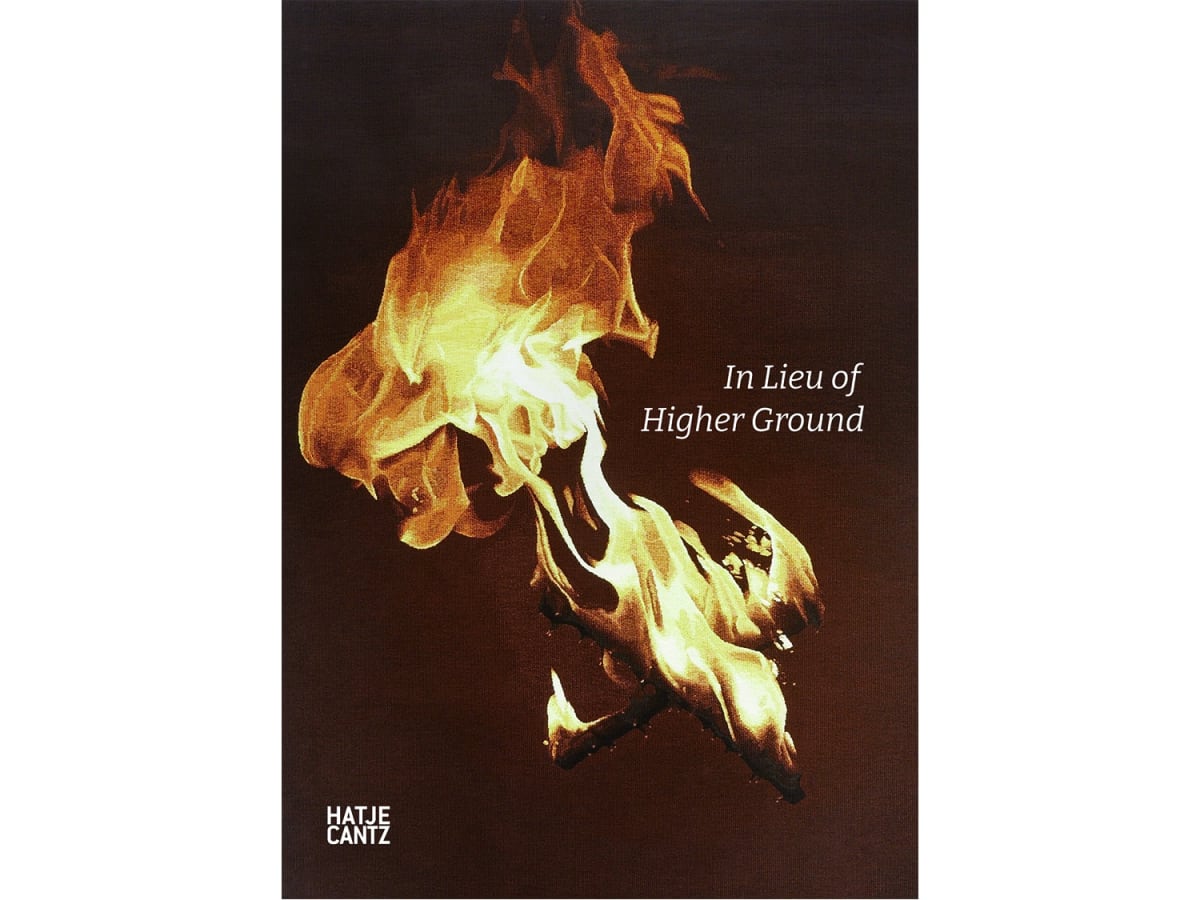Song Burnsoo Korea, b. 1943
Song Burnsoo is a leading figure of Korean modernism and avant-garde featuring his own practice by encompassing a wide range of art. He has been dedicating himself over a half century to figure the unique identity of Korean contemporary art. His practice has expanded to the religious reflection on human existence through lifelong investigation, and shows outstanding achievements not only in the contemporary art but also in the realm of religious art.
At his early phases until 1970s, he encountered the social injustice and raised a voice of criticism by working on intense and provocative prints by borrowing pop art elements. Song began to work with the tapestry as a medium during his years in Paris. The tapestry became a catalyst that drew Song’s popular acclaim and critical distinction of his artistic practice. Works that combine titles that reflect personal experiences and have a vision effect on objects with sophisticated weaving, not just the level of depicting objects, are still considered his representative style. The motif of ‘thorn’ is also concretized gradually from the mid-1970 after his studying in Paris. Starting to describe roses with distinctive sharp thorns in prints, the thorn becomes the persona of Song as he deeply engaged in a spiritual reflection through the ups and downs of life. The assemblage of thorn-shaped reliefs generates a keen sense of tension as though they penetrated the actual surface of the canvas and encourages the audience to appreciate multi-layered psychological states such as pain and sacrifice or despair and hope with a more tangible approach. In recent years, extending every further on the symbolism given to the ‘thorn’, Song took a new approach on the new value of thorn to reproduce individual units of planets, constellations, and their clusters as objects echoing the master’s monologue who witnessed the wonders of the world in mind.
Song Burnsoo lives and works in Yongin, Korea. He was a professor of College of Fine Arts at Hongik University from 1980 to 2008 and a director of Daejeon Museum of Art. Currently he is an honorary professor at Hongik University and a director of the Maga Art Museum, which was established in 1998 to support young artists of textile crafts. In 2000, he received the decorated the Order of National Service Merit in Korea and in 2001, he won the first golden fleece prize at On the occasion of the 1000th anniversary of the foundation of the Hungarian State. Along with the large-scale retrospective, Song Burnsoo_Pantomime of 50 Years in National Museum of Modern and Contemporary Art, Korea, his work has been featured in exhibitions in Gyeonggi Museum of Modern Art (2016), Museum of Fine Arts Budapest (2005), MMCA Korea (2003), Daejeon Museum of Art (2000), Busan Museum of Art (1999), Tokyo Metropolitan Art Museum (1987). His work is represented in the collections of MMCA Korea, Seoul Museum of Art, Busan Museum of Art, Daejeon Museum of Art, National Museum of Budapest and H.Q of Korean U.N., Switzerland.
-
 Song BurnsooPossibility 023-CV, CVI, CVII, 2023
Song BurnsooPossibility 023-CV, CVI, CVII, 2023 -
 Song BurnsooPossibility-Constellation 022-II, 2022
Song BurnsooPossibility-Constellation 022-II, 2022 -
 Song BurnsooPossibility 022-IXXXIII, 2022
Song BurnsooPossibility 022-IXXXIII, 2022 -
 Song BurnsooPossibility #21BS072, 2021
Song BurnsooPossibility #21BS072, 2021 -
 Song BurnsooPossibility #21BS081, 2021
Song BurnsooPossibility #21BS081, 2021 -
 Song BurnsooPossibility 022-VII, 2022
Song BurnsooPossibility 022-VII, 2022 -
 Song BurnsooPossibility 022-IXIV, 2022
Song BurnsooPossibility 022-IXIV, 2022 -
 Song BurnsooKnow Yourself, 2007
Song BurnsooKnow Yourself, 2007 -
 Song BurnsooSouth Gate (Soongnyemoon) of Seoul, 1988
Song BurnsooSouth Gate (Soongnyemoon) of Seoul, 1988 -
 Song BurnsooThe Principle of Relativity, 1988
Song BurnsooThe Principle of Relativity, 1988 -
 Song BurnsooThe Purity that I Haven’t Owned through My Life, 1995
Song BurnsooThe Purity that I Haven’t Owned through My Life, 1995 -
 Song BurnsooFiber Drawing, 1987
Song BurnsooFiber Drawing, 1987
-

Song Burnsoo
Know Yourself 23 August - 24 September 2022Read more -

In Lieu of Higher Ground
Park Suk Won, Park Jang Nyun, Song Burnsoo 30 January - 29 February 2020Gallery Baton is pleased to present ‘In Lieu of Higher Ground’, a group exhibition by three Korean contemporary artists, Park Suk Won, Park Jang Nyun and Song Burnsoo, from 30th January to 29th February, 2020. The exhibition attempts to highlight the life-long commitment to creation by three masters who have a great influence upon the process of establishing the current hybrid cultural-geography of ‘Korean contemporary art’ from its beginning period to the present phase which conveys diversified identities and zeitgeist. The title, ‘In Lieu of Higher Ground’, implies the remarkable achievement of the three artists whose life consequently became their artistic trajectories by embracing an attitude of seeking unity of the physical and the spiritual. As they have dedicated their entire life to investigating into aesthetic accomplishment and manifestation of their own creative world instead of chasing after personal fame and materialistic advancement, we dare to speak that they have silently but stubbornly broadened the scope of their artistic territories by exploring unknown realms from a perspective of a seeker rather than trying to set up another monument on the existing land—Korean contemporary art.Read more
-

Song Burnsoo
Only the Young: Experimental Art in Korea, 1960s–1970s at Hammer Museum 11 February 2024Gallery Baton is pleased to announce Song Burnsoo participates to a Group exhibition , Only the Young: Experimental Art in Korea, 1960s–1970s at Hammer Museum,...Read more -

Song Burnsoo
Only the Young: Experimental Art in Korea, 1960s–1970s at Solomon R. Guggenheim Museum 1 September 2023Gallery Baton is pleased to announce Song Burnsoo participates to a Group exhibition , Only the Young: Experimental Art in Korea, 1960s–1970s at Solomon R....Read more -

Song Burnsoo
Only the Young: Experimental Art in Korea, 1960s–1970s at MMCA Seoul 26 May 2023Gallery Baton is pleased to announce Song Burnsoo participates to a Group exhibition , Only the Young: Experimental Art in Korea, 1960s–1970s at MMCA, Korea...Read more -

Song Burnsoo
A Compass at Daedam Museum 29 June 2021Gallery Baton is pleased to announce a solo exhibition by Song Burnsoo, A Compass at Daedam Museum, Korea. Song Burnsoo A Compass 29 June 2021...Read more






















